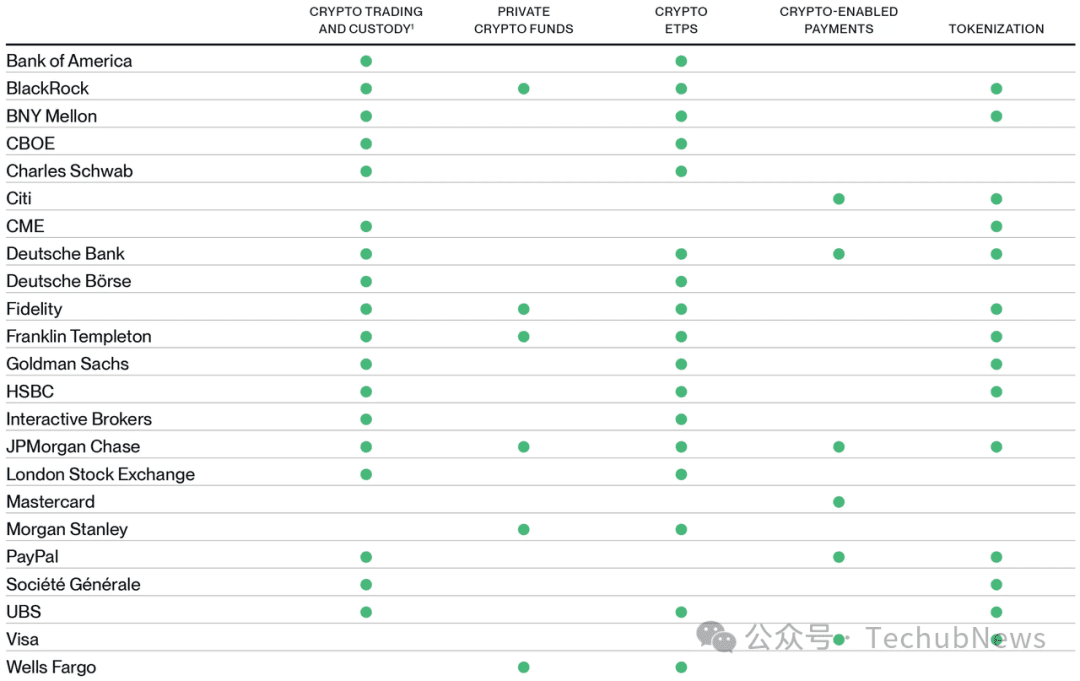This week, Washington has reached a pivotal moment hailed as 'Cryptocurrency Week,' with the U.S. Congress accelerating the advancement of multiple supportive cryptocurrency legislations, indicating a significant transformation for the cryptocurrency industry. This not only injects new growth momentum into the industry but also significantly reduces its future risks.
Legislative highlights of 'Cryptocurrency Week': On July 3, the U.S. House of Representatives passed a low-key but far-reaching press release officially declaring June 14 as 'Cryptocurrency Week' and pledging to advance three key pieces of cryptocurrency legislation:
(GENIUS Act): Provides a clear regulatory framework for stablecoins. This bill has passed the Senate with a vote of 68 to 30, including support from 18 Democratic senators, making it one of the most bipartisan bills of the 2025 congressional session. If passed in the House, the bill will be sent to the President for signing and is expected to become the first significant cryptocurrency legislation in U.S. history.
(CLARITY Act): Establishes a comprehensive regulatory framework for crypto assets, aiming to provide clear compliance guidance for market participants.
(Anti-CBDC Surveillance National Legislation): Prohibit the creation of Central Bank Digital Currency (CBDC) in the U.S. to protect financial privacy and market freedom.
Although the (CLARITY Act) and the (Anti-CBDC Act) still require Senate approval, the passage of either bill in the House would be a significant milestone for the cryptocurrency industry.
Why are these legislations crucial for cryptocurrency?
A clear regulatory framework will bring dual benefits to the cryptocurrency industry:
Promoting growth and reducing risks
1. Promoting growth: Clear cryptocurrency legislation will incentivize large financial institutions to increase their presence in the crypto space, attract billions of dollars in investments, and guide trillions of dollars of traditional assets into blockchain-based ecosystems. Imagine the prosperity of the cryptocurrency market if JPMorgan, Bank of New York Mellon, or Nasdaq could develop freely in a clear regulatory environment? The answer will soon be revealed during 'Cryptocurrency Week.'
2. Reducing risks: The cryptocurrency industry has suffered repeatedly due to a lack of regulation, with collapses such as FTX, Luna, and Three Arrows Capital not only devastating the market but also undermining investor confidence. These failures largely stem from regulatory deficiencies:
If there are clear regulations governing exchanges, collapses similar to FTX caused by a lack of internal controls and audits will be less likely.
If large banks can custody crypto assets, investors will no longer shy away due to custody risks.
If the (GENIUS Act) is implemented sooner, Ponzi stablecoins like Luna will have no foothold.
While clear rules cannot completely eliminate market scandals—evidenced by Bernie Madoff and Credit Suisse in traditional finance—they can significantly reduce the likelihood of such events occurring. Over the past 15 years, Bitcoin, despite being one of the best-performing assets globally, has experienced seven drops of over 70%. Clear regulations will reduce the risk of unexpected collapses caused by unregulated offshore platforms, and the likelihood of significant market volatility will decrease accordingly. Why does cryptocurrency garner bipartisan support? There are common concerns that the next government may reverse the achievements of cryptocurrency legislation, but this worry may be unwarranted. Cryptocurrency is one of the few policy issues that enjoys broad support from both parties in the U.S. The passage of the (GENIUS Act) in the Senate is an example of this bipartisan support. Several reasons underpin the bipartisan backing:
Young voters' enthusiasm: Cryptocurrency is popular among younger demographics, making it difficult for politicians to ignore this trend.
Push from the financial industry: The U.S. financial sector—traditionally a major donor to the Democratic Party—is eager to seize the growth opportunities presented by cryptocurrency. Major financial institutions like BlackRock, JPMorgan, and Morgan Stanley have varying degrees of involvement in the crypto space, with millions of Americans and thousands of businesses investing.
This economic incentive ensures the long-term sustainability of cryptocurrency legislation. As a vivid metaphor puts it: 'You can't put the genie back in the bottle.' Once these bills are passed and signed into law during 'Cryptocurrency Week,' cryptocurrency will enter a new era of mainstream acceptance.
Trend of institutional adoption

Source: Bitwise Asset Management, data from company filings and presentations. Data as of June 30, 2025. (1) 'Cryptocurrency trading and custody' includes trading of cryptocurrency spot, futures, and derivatives.
According to Bitwise Asset Management, as of June 30, 2025, nearly all major financial institutions in the U.S. have engaged in cryptocurrency trading, custody, or derivatives markets. This wave of institutional adoption further solidifies the position of cryptocurrencies, making policy reversals more difficult.
Washington's 'Cryptocurrency Week' is not just a legislative event, but a turning point for the maturity of the cryptocurrency industry. Through legislation such as the (GENIUS Act), (CLARITY Act), and (Anti-CBDC Act), the cryptocurrency market will witness clearer rules, lower investment risks, and stronger growth momentum. This not only opens new opportunities for investors and institutions but also lays the groundwork for building an open, transparent, and efficient financial ecosystem. Cryptocurrency is becoming mainstream, and the legislative progress of this week will write a new chapter for the industry’s future.



